Exhibition
April 2020 - March 2021
-
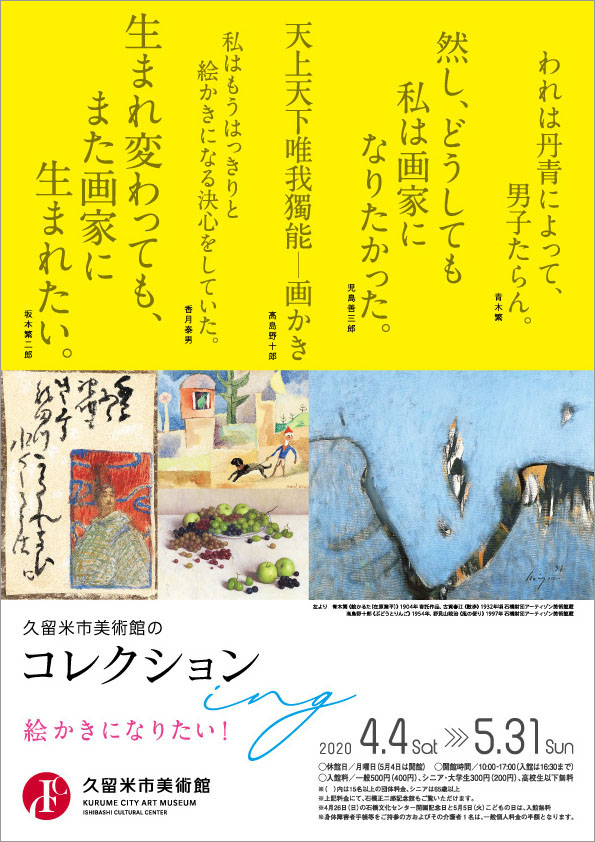
Growing Collection of Kurume City Art Museum: Yearning to Become an Artist2020.04.04(Sat.)-2020.06.07(Sun)
This is the third in a series of exhibitions composed mainly of works from our own collection and introducing works by Western-style painters from or related to Kyushu from a new perspective. This time, with focus on the artist’s age at the time a work was painted, works done by artists in their teens to in their eighties are presented in order of age. How boys who had been fond of pictures for as long as they could remember resolved to become an artist and each led diverse careers as an artist is surveyed through approximately 120 works.
-
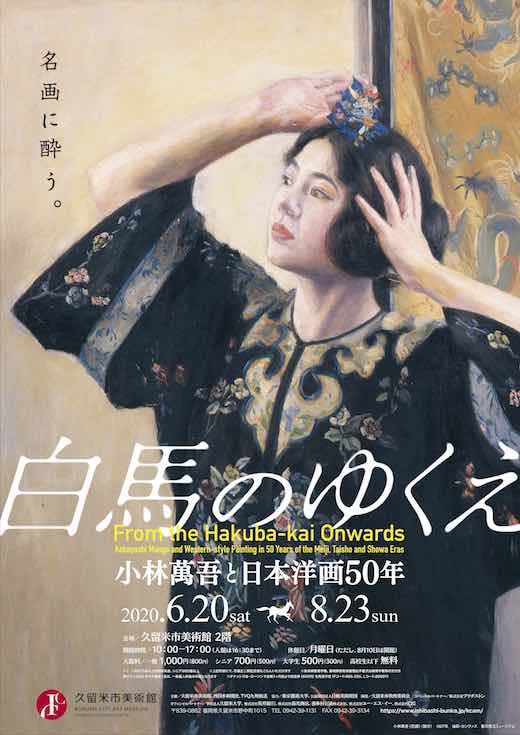
From the Hakuba-kai Onwards: Kobayashi Mango and Western-style Painting in 50 Years of the Meiji, Taisho and Showa Eras2020.06.20(Sat)-2020.08.23(Sun)
Kobayashi Mango (1868-1947) was born in Kagawa and studied at Tokyo School of Fine Arts. Active in groups such as Hakuba-kai, Kofu-kai, and Teiten (the Exhibition of the Imperial Academy of Fine Arts), he was one of the artists indispensable to the formation of academism in Japanese Western-style painting. He lived at a time when Japanese Western-style painting was heading from its dawning to a period of maturation, perfectly overlapping the evolution of Japanese Western-style painting. In this retrospective, which is the first to be held outside his native town, in addition to representative works by Kobayashi, his teacher, Kuroda Seiki, fellow artists at Hakuba-kai and Kofu-kai, and artists of later generations are also introduced to vividly illustrate the history of Japanese Western-style painting.
-
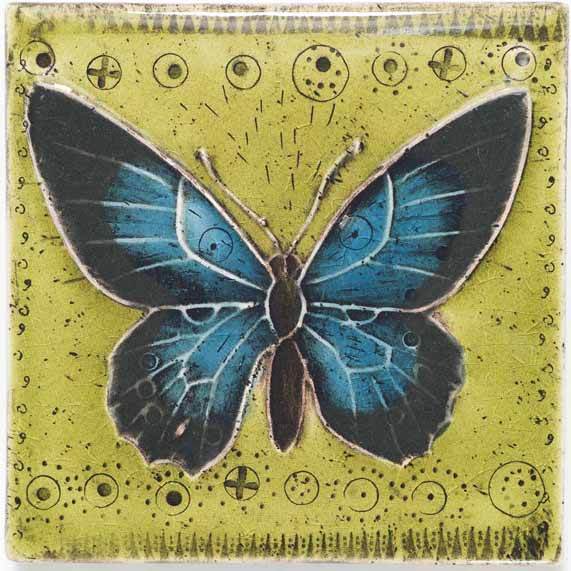
Rut Bryk: Touch of a Butterfly
2020.07.18(Sat)-2020.09.06(Sun)cancelled- First Floor
Rut Bryk (1916-1999) was a leading ceramic artist of Finland. She worked at the renowned Arabia Factory for fifty years and produced a variety of expressions during her career. This retrospective marks the twentieth anniversary of her death and is the first to be held in Japan. Approximately 200 works dating from the early charming, figurative works to later abstract works combining innumerous small tiles are introduced.
Rut Bryk, Perhonen / Butterfly, 1957, Tapio Wirkkala Rut Bryk Foundation’s Collection / EMMA - Espoo Museum of Modern Art © KUVASTO, Helsinki & JASPAR, Tokyo, 2018 C2531 -
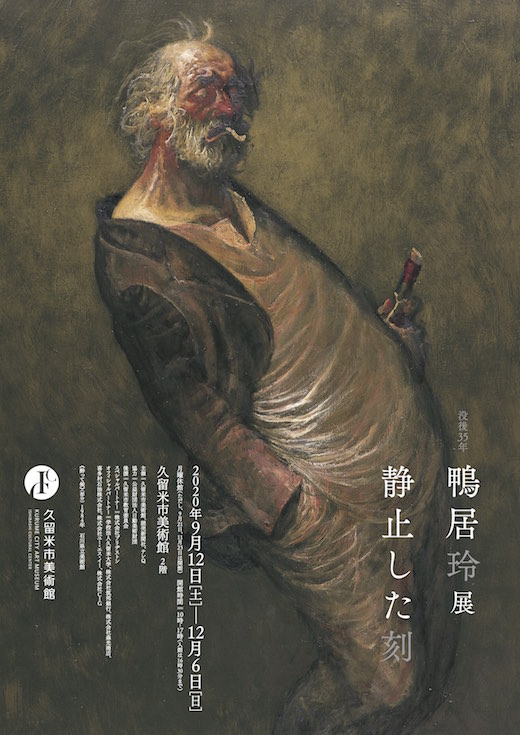
Kamoi Rei: 35 Years After His Death2020.09.12(Sat)-2020.12.06(Sun)
Kamoi Rei (1928-1985, also identified as Camoy Rey) was born in Ishikawa. He entered Kanazawa College of Art at age eighteen and studied under Miyamoto Saburo. He then traveled to Paris, Spain, etc. and achieved a unique realism in which he superimposed himself on a lamenting old man or a dazed clown. Most of Kamoi’s works can be considered self-portraits. Commemorating the 35th anniversary of his death, this exhibition traces the world of Kamoi Rei through approximately 100 works including his masterpieces.
-
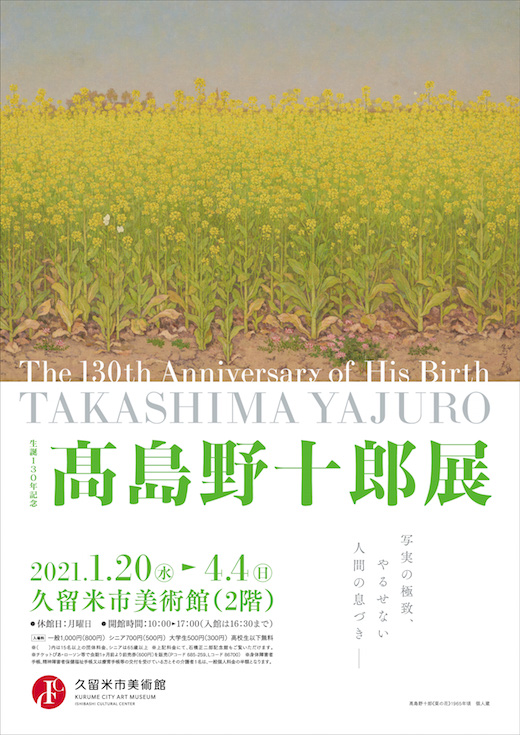
Takashima Yajuro: The 130th Anniversary of His Birth2021.01.20(Wed)-2021.04.04(Sun)
2020 marks the 130th anniversary of the birth of Takashima Yajuro (1890-1975), a Western-style painter who lived a life of proud independence. In addition to Kurume, where Yajuro was born, this retrospective will also be touring the Kanto and Kansai regions. In Kurume, this artist was last featured in a homecoming exhibition in 2011. A full view of this artist cloaked in mystery will be introduced through works mainly from the collection of Fukuoka Prefectural Museum of Art plus newly discovered works.
